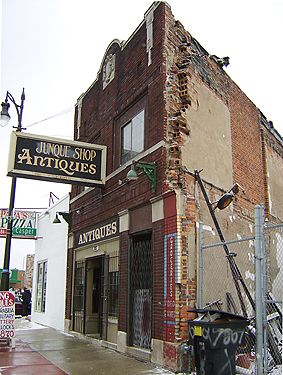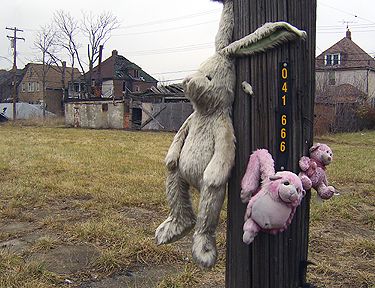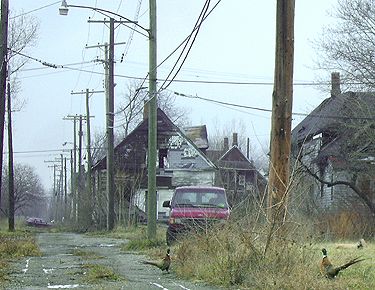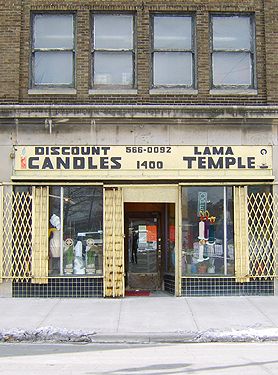Detroit
Here's a blog worth visiting if you're from Michigan: Detroitblog. It's neat, but it's hard to explain why it's neat. It celebrates a broken city, and it doesn't hide the decay. In fact, it celebrates the decay, in a way. I guess the 1960s (?) mantra, "There's something to love in every day" applies. Then again, if I actually lived there, there's no way I'd be chanting that mantra.
I've speculated that Detroit would make a great laboratory for anarcho-capitalism. The State of Michigan and City of Detroit would sell all its public property: streets, parks, municipal buildings, everything (except maybe the police stations). The sale would be by auction, giving corporations the opportunity to buy-up huge swaths of land that they could then develop, leave vacant, or whatever. But they'd be responsible for it. I might go along with a continuing police force, at least for awhile (Detroit could use the proceeds from the sell-off to fund a force), along with a court system, but everything else would be turned over to the free market. We could then get an idea of whether extreme libertarianism works. I'm not saying it would or wouldn't, but I think the idea has enough merit to deserve an experiment, and it's not like it'll make things worse in Detroit.
Then again, retail is booming in Detroit now:

And a sense of community flourishes:

And city parks are nice (or is that a car dealership?):

And shopkeepers feel safe at night:

It's quite sad, actually. Fifty years ago, Detroit was one of the world's greatest cities, and now it's been a sociological and economical crater for over thirty years. Though African-Americans under the racist Coleman Young deserve some blame, there's plenty of blame for whitey, too. The federal highway system tore apart the old ethnic neighborhoods, many of them Catholic parishes. Urban renewal demolished ethnic neighborhoods like Corktown. Once the federal government and urban planners had killed all the neighborhoods and parishes, there was only one thing left: The State. There were no mediating institutions between The State and individuals, and the individuals were crushed . . . and continue to be crushed. Get rid of The State in Detroit, and maybe Detroit could return to a somewhat-livable city. It's just a theory, but Detroit's current reality is a damning indictment of every aspect of 20th-century American political practice.
